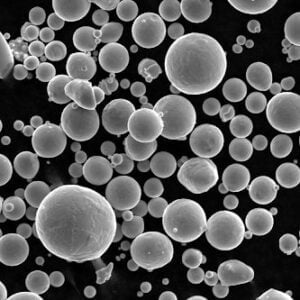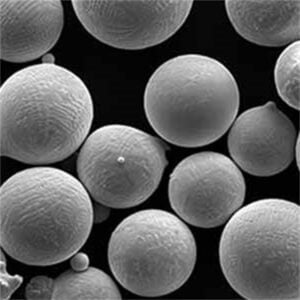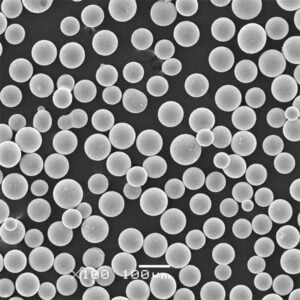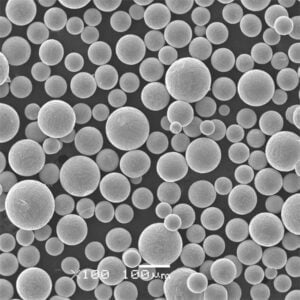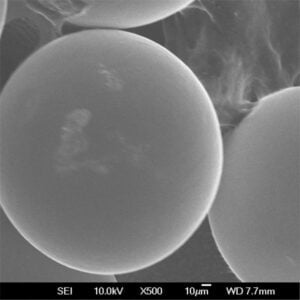Prášek uhličitanu nikelnatého
Obsah
Prášek uhličitanu nikelnatého je důležitou průmyslovou chemikálií se širokou škálou použití. Tento článek poskytuje přehled práškového uhličitanu nikelnatého a jeho klíčových vlastností, aplikací, specifikací, cen a dalších informací.
Přehled prášku uhličitanu nikelnatého
Uhličitan nikelnatý, chemický vzorec NiCO3, je anorganická sůl, která za standardních podmínek tvoří světle zelený prášek. Některé klíčové údaje o práškovém uhličitanu nikelnatém zahrnují:
Složení
- Primárně se skládá z niklu, uhlíku a kyslíku.
- Obvykle obsahuje nikl 57-59%
- K dispozici v technické a čisté kvalitě
Klíčové vlastnosti
- Jemný zelený krystalický prášek
- Hustota kolem 3,7-3,9 g/cm3
- Bod tání se rozkládá při 240 °C před roztavením
- Rozpustný v kyselinách, amoniaku; nerozpustný ve vodě
- Nehořlavý bez bodu vzplanutí
Typické nečistoty
- Železo, síra, chlorid, oxid křemičitý
- 1-3% pro technické třídy, méně než 1% pro čisté třídy
Nebezpečí
- Nízká akutní toxicita
- Chronická expozice může způsobit senzibilizaci kůže a podráždění dýchacích cest.
Aplikace
- Galvanické pokovování - matné niklové nánosy
- Keramika - pigmenty, glazury
- Prekurzor katalyzátoru
- Baterie - niklové elektrody
- Další použití
Uhličitan nikelnatý je všestranně použitelný jako chemický meziprodukt v různých průmyslových odvětvích, jako je galvanické pokovování, keramika, katalýza a baterie.
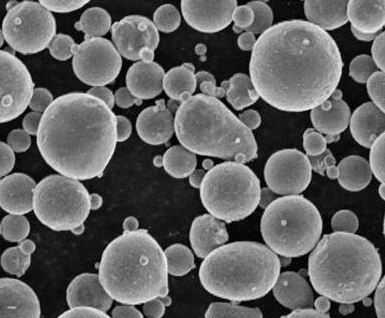
Typy Prášek uhličitanu nikelnatého
Práškový uhličitan nikelnatý je k dispozici v různých kvalitách pro technické účely a pro použití s vysokou čistotou:
| Typy | Obsah niklu | Nečistoty | Velikost částic | Typická použití |
|---|---|---|---|---|
| Technická stránka | 57-59% | Vyšší | Prášek do granulí | Galvanické pokovování, keramika |
| Čistý / rafinovaný | Min 59% | Nižší (<1%) | Velmi jemný prášek | Katalyzátor, baterie |
Existují také různé formy práškového uhličitanu nikelnatého, pokud jde o složení:
| Formuláře | Složení | Vlastnosti | Používá |
|---|---|---|---|
| Základní uhličitan nikelnatý | 2NiCO3.3Ni(OH)2.xH2O | nazelenalý odstín, vyšší obsah niklu | Preferované pro pokovování |
| Neutrální uhličitan nikelnatý | NiCO3 | Šedozelená, spodní nikl | Některá technická použití |
V této tabulce jsou porovnány některé vlastnosti základní a neutrální formy:
| Vlastnictví | Základní uhličitan nikelnatý | Neutrální uhličitan nikelnatý |
|---|---|---|
| Rozpustnost v amoniaku | Rozpustné | Nerozpustné |
| Obsah niklu | Vyšší (~58%) | Nižší (~50%) |
| Stabilita | Méně stabilní | Stabilnější |
| Cena | Vyšší | Dolní |
Souhrnně lze tedy říci, že existují třídy technické a vysoké čistoty, základní a neutrální formy složení a rozdíly ve vlastnostech prášku, které vyhovují konečným aplikacím.
Výrobní metody
Mezi hlavní způsoby výroby práškového uhličitanu nikelnatého patří:
- Přímé sycení oxidem uhličitým - Reakce oxidu nikelnatého s plynným oxidem uhličitým
- Nepřímé sycení oxidem uhličitým - Čpavkový proces s niklovým matným povrchem
- Metoda substituce - Iontová výměnná reakce od chloridu nebo síranu nikelnatého
Níže uvedená tabulka ukazuje srovnání jednotlivých metod:
| Výrobní trasa | Suroviny | Typický obsah niklu | Nečistoty | Škálovatelnost |
|---|---|---|---|---|
| Přímé sycení oxidem uhličitým | Oxid nikelnatý | 57-59% | Střední | Menší dávky |
| Nepřímé sycení oxidem uhličitým | Nikl matný | 57-59% | Nízký | Velký rozsah |
| Metoda substituce | Soli niklu | 57-60% | Velmi nízká | Flexibilní |
Přímá karbonizace je jednoduchý proces, ale může přinést nečistoty z oxidu nikelnatého nižší kvality. Nepřímý amoniakální proces využívá velmi čisté suroviny z niklové matrice. Metoda substituce nabízí velkou čistotu a flexibilitu, ale vyžaduje další suroviny ze solí niklu.
Specifikace
Práškový uhličitan nikelnatý je k dispozici podle různých mezinárodních specifikací a norem:
| Normy | Minimální nikl (%) | Maximální množství nečistot | Velikost částic (Mesh) |
|---|---|---|---|
| ASTM B154 | 57 | 3% Fe,1% S,1% insol | >100 ok |
| GB/T 3562 | 58 | 1.7% Fe,1% Cl,1% S | – |
| QC/T 783-2008 | – | 0,005% Co;0,01% Cu;1% insol | – |
Specifikace uhličitanu nikelnatého uvádějí požadavky na chemické složení, minimální obsah niklu, limity přítomného železa, síry a dalších nečistot, jakož i distribuci velikosti částic prášku.
Známky
Třídy uhličitanu nikelnatého podle obsahu niklu (%):
- Nízká: 50-56%
- Standard: 57-59%
- Vysoká čistota: Min 59%+
Podle obsahu nečistot a požadavků na použití lze rozlišovat mezi technickými, průmyslovými, čistými atd. třídami.
Balení
Běžné možnosti balení:
- Malé pytle / kontejnery - 1kg, 5kg, 25kg
- Bubny - obvykle 50 kg, 100 kg
- Super pytle - 500 kg až 1500 kg
Obalovým materiálem jsou obvykle plastové nebo plastem vyložené sáčky/kontejnery. Větší množství se přepravují v zabezpečených sudech nebo super pytlích. U velkoobjemových uživatelů je možné použít vlastní balení.
Stanovení cen
Odhad ceny pro práškový uhličitan nikelnatý (USD za metrickou tunu):
| Třída | Čistota | Cenové rozpětí |
|---|---|---|
| Technická stránka | 57-58% Ni | $14,000 – $16,000 |
| Rafinovaný | Min. 59% Ni | $17,000 – $19,000 |
| Vysoká čistota | >99% | $21,000 – $25,000 |
Klíčové faktory ovlivňující ceny uhličitanu nikelnatého:
- Ceny niklu - Přímo navázáno na ceny indexu niklu LME
- Čistota - Vyšší čistota vyžaduje vyšší cenu
- Množství - Při velkých objemech nákupů se obvykle poskytují slevy
- Zeměpisná poloha - Regionální dynamika nabídky a poptávky
Aktuální ceny lze nejlépe získat přímo od dodavatelů a distributorů uhličitanu nikelnatého na základě jakosti, objemu atd.
Aplikace a použití
Mezi hlavní průmyslové aplikace a použití práškového uhličitanu nikelnatého patří:
Galvanické pokovování
- Používá se k nanášení matných nebo pololesklých niklových povlaků.
- Levnější než síran nikelnatý a chlorid nikelnatý
- Upřednostňuje se zásaditý uhličitan nikelnatý, aby se předešlo nečistotám ovlivňujícím kvalitu pokovení.
Keramika
- Zdroj niklu pro barvení glazur a pigmentaci keramiky
- Poskytuje jedinečné zelené, hnědé, žluté a kovové efekty.
Prekurzor katalyzátoru
- Přeměněn na kovový nikl nebo oxid nikelnatý používaný v katalyzátorech
- Katalyzátory pro hydrogenaci, dehydrogenaci a odsíření
Baterie
- Katodový materiál v niklových elektrodách pro dobíjecí niklové baterie
- Vyžaduje velmi vysokou čistotu rafinovaného zásaditého uhličitanu nikelnatého
Další použití
- Výroba solí niklu - síran nikelnatý, octan nikelnatý, chlorid nikelnatý atd.
- Slitiny a kovové výrobky
- Barvení a leštění skla
- Magnetické materiály
- Přísada do portlandského cementu
Tato tabulka shrnuje některé technické specifikace specifické pro dané aplikace:
| aplikace | Potřebný stupeň | Typický obsah niklu | Limity nečistot | Velikost částic |
|---|---|---|---|---|
| Galvanické pokovování | Základní | 57-58% | Nižší obsah železa | Granule, prášek |
| Keramika | Buď | 57-59% | Uvolněný | – |
| Catalyst | Vysoká čistota | Min 99% | Velmi nízká | – |
| Baterie | Vysoká čistota, základní | 99.9-99.99% | Extrémně nízká | Ultrajemné <1 mikron |
Práškový uhličitan nikelnatý se tak v různých oblastech zpracovává na konečné produkty pro průmyslová odvětví od pokovování až po vysoce výkonné baterie.
Dodavatelé a výrobci
Mezi přední světové dodavatele a výrobce práškového uhličitanu nikelnatého patří:
| Společnost | Lokality | Výrobní kapacita | Typické produkty |
|---|---|---|---|
| Jilin Jien Nickel Industry Co., Ltd. | Čína | 20 000 mt | Technické, čisté stupně |
| INCO Limited | Kanada | 10 000 mt | Baterie, třídy katalyzátorů |
| Skupina Chengtun | Čína | 10 000 mt | Nízká/vysoká třída |
| Umicore | Evropa, Asie | NA | Vysoká čistota |
| Americké prvky | USA | NA | Vysoká čistota |
Distributoři a prodejci
- Alpha Chemicals
- Americké prvky
- Glentham Life Sciences
- Hefei TNJ Chemical
- Loba Chemie
- Strem Chemicals
- Shanghai Ruizheng Chemical
- BeanTown Chemical
- Kariéra Henan Chemical
Výhody uhličitanu nikelnatého
Některé z hlavních výhod a přínosů používání práškový uhličitan nikelnatý oproti jiným sloučeninám niklu:
| Výhody | Podrobnosti |
|---|---|
| Nižší náklady | Levnější než síran nikelnatý nebo chlorid nikelnatý |
| Snadnější manipulace | Méně hygroskopický než chlorid nikelnatý, který rychle absorbuje vlhkost. |
| Méně nečistot | Obsahuje méně problematických prvků, jako je sodík, vápník a hořčík, než jiné soli niklu. |
| Stabilní složení | Základní forma uhličitanu nikelnatého zachovává při zpracování rovnoměrný poměr Ni:CO3. |
| Jednotné vklady | Základní uhličitany niklu zajišťují hladké, matné povlaky niklu z pokovovacích lázní bez vzniku důlků. |
| Snadný rozptyl | Žádné problémy se spékáním - dobře disperguje ve vodných roztocích pro pokovování |
Klíčové důvody, proč se v některých aplikacích dává přednost uhličitanu nikelnatému, spočívají v ekonomice, manipulaci, konzistenci a výkonnostních faktorech.
Proti síranu nikelnatému
Srovnání uhličitanu nikelnatého se síranem:
- Nižší cena
- Méně rozpustné, ale snadněji filtrovatelné zbytky
- Vyrábí tmavší niklový plech
- Může vnášet do usazenin defekty na bázi síry, které ovlivňují tažnost.
Proti chloridu nikelnatému
Srovnání uhličitanu nikelnatého s chloridem:
- Mnohem nižší náklady
- Žádné problémy s absorpcí hydroskopické vlhkosti během skladování
- Méně korozivní pro zařízení, jako jsou pokovovací nádrže.
- Vytváří desky s horší tažností než roztoky chloridů
Souhrn
Zatímco síran nikelnatý a chlorid nikelnatý mají oblasti, ve kterých jejich pokovovací vlastnosti vynikají, uhličitan nikelnatý nabízí nejlepší kombinaci cenové dostupnosti, manipulace a kvality nánosu, což z něj činí univerzální pokovovací chemikálii.
Omezení uhličitanu nikelnatého
| Nevýhody | Vypracování |
|---|---|
| Nerozpustnost | Má relativně nízkou rozpustnost, která může vyžadovat míchání, zahřívání nebo čpavek, aby se plně rozpustil v pokovovacích roztocích. |
| Pomalé rozpouštění | Rychlost rozpouštění je slabší než u jiných rozpustných niklových solí - vyžaduje úpravu procesu |
| Nečistoty | Technické třídy mohou obsahovat nečistoty ovlivňující kvalitu |
| Toxicita | Rizika vdechnutí, pokud nejsou prášky kontrolovány |
Problémy s pokovováním
Některá specifická omezení při použití práškového uhličitanu nikelnatého pro galvanické pokovování oproti alternativám:
- Vyžaduje vyšší pH lázně pro rozpouštění
- Může vnášet cizí prvky, jako je železo ovlivňující usazeniny
- Větší požadavky na filtraci pro zachycení nerozpuštěných částic
- Delší doba rozpouštění, která snižuje výkonnost výroby pokovování
- Kvalita povrchu je nižší než u pokovování na bázi síranů nebo chloridů.
- Konečná tažnost desek není tak vysoká jako u síranů nebo chloridů
Tato omezení jsou však zmírněna správnou přípravou lázně, filtrací a kontrolou procesu.
Zmírňující opatření
- Začněte s práškovým zásaditým uhličitanem nikelnatým vyšší čistoty, pokud je to možné.
- Použití čpavku, zahřívání, míchání ke zlepšení rozpouštění
- Použití magnetických odlučovačů nebo účinné filtrace k odstranění znečištění částicemi.
- Před přidáním do pokovovací lázně prášek předem rozpusťte v roztoku niklu.
- Úprava provozních parametrů - pH, teplota, hustota proudu pro zlepšení kvality
- Zvažte použití uhličitanu nikelnatého spolu se síranovými nebo chloridovými solemi, abyste vyvážili náklady a výkonnost.
Bezpečnost a toxicita
Prášek uhličitanu nikelnatého vyžaduje bezpečné zacházení:
- Vdechování prachu - Používejte ochranu dýchacích cest; zabraňte vzniku prachu
- Styk s kůží - Používejte rukavice; omyjte zasažená místa.
- Styk s očima - Používejte ochranné brýle; při zasažení očí je vypláchněte.
- Požití - Nekonzumovat; v případě požití vypláchnout ústa.
Pokyny pro vystavení
- OSHA PEL 1 mg/m3 (nikl)
- ACGIH TLV 0,1 mg/m3 (nikl)
Údaje o toxicitě
- Nízká akutní orální/dermální toxicita
- Může vyvolat senzibilizaci kůže při opakovaném kontaktu
- Čím vyšší riziko chronické toxicity, tím čistší třída.
Před manipulací s práškovým uhličitanem nikelnatým nebo jeho zpracováním vždy zkontrolujte bezpečnostní listy (SDS) od dodavatelů, kde najdete aktuální a podrobné bezpečnostní informace.
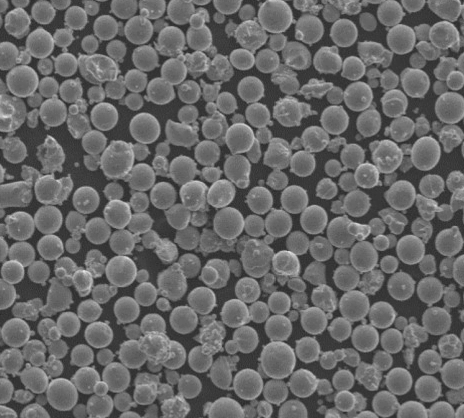
Nejčastější dotazy
Otázka: Je uhličitan nikelnatý přírodní nebo syntetický?
Odpověď: Komerčně dostupný uhličitan nikelnatý se vyrábí synteticky chemickou přeměnou rud obsahujících nikl. Přírodní minerál uhličitan nikelnatý je velmi vzácný.
Otázka: Co je zásaditý a neutrální uhličitan nikelnatý?
Odpověď: Základní uhličitan nikelnatý obsahuje hydroxid nikelnatý, zatímco neutrální forma je čistý NiCO3. Základní typy mají vyšší obsah niklu a lepší pokovovací vlastnosti.
Otázka: K čemu se používá uhličitan nikelnatý?
Odpověď: Hlavní použití je galvanické pokovování pro nanášení niklových vrstev, keramika pro barvení a glazury, materiál pro výrobu katalyzátorů a nikl-kovové baterie.
Otázka: Je uhličitan nikelnatý nebezpečný?
Odpověď: Má nízkou akutní toxicitu, ale dlouhodobá expozice představuje vyšší riziko chronické toxicity v důsledku akumulace niklu a vdechování. Při manipulaci je třeba používat vhodné osobní ochranné pomůcky.
Otázka: Jaké jsou běžné průmyslové normy pro uhličitan nikelnatý?
Odpověď: Klíčové specifikace práškového uhličitanu nikelnatého se řídí normami jako ASTM B154, GB/T 3562 a QC/T 783-2008, které se týkají složení, čistoty a obsahu niklu.
Otázka: S čím reaguje uhličitan nikelnatý?
Odpověď: Reaguje s minerálními kyselinami za vzniku niklových solí. Na vlhkém vzduchu se pomalu mění na hnědočernou za vzniku povrchového hydroxidu nikelnatého. Při vysokých teplotách se rozkládá před tavením. Opatrně s alkálií.
Otázka: Je uhličitan nikelnatý rozpustný ve vodě?
Odpověď: Ne, uhličitan nikelnatý má velmi nízkou rozpustnost ve vodě. K jeho úplnému rozpuštění je třeba zahřátých kyselých pokovovacích roztoků nebo čpavku, aby se plně rozpustil pro aplikace, jako je galvanické pokovování.
Otázka: Jaké jsou alternativy k použití uhličitanu nikelnatého?
Odpověď: V závislosti na použití jsou alternativami síran nikelnatý, chlorid nikelnatý pro pokovování; oxid nikelnatý, hydroxid nikelnatý pro baterie; jiné sloučeniny niklu pro katalyzátory.
Sdílet na
MET3DP Technology Co., LTD je předním poskytovatelem řešení aditivní výroby se sídlem v Qingdao v Číně. Naše společnost se specializuje na zařízení pro 3D tisk a vysoce výkonné kovové prášky pro průmyslové aplikace.
Dotaz k získání nejlepší ceny a přizpůsobeného řešení pro vaše podnikání!
Související články

Vysoce výkonné segmenty lopatek trysek: Revoluce v účinnosti turbín díky 3D tisku z kovu
Přečtěte si více "O Met3DP
Nedávná aktualizace
Náš produkt
KONTAKTUJTE NÁS
Nějaké otázky? Pošlete nám zprávu hned teď! Po obdržení vaší zprávy obsloužíme vaši žádost s celým týmem.

Kovové prášky pro 3D tisk a aditivní výrobu
SPOLEČNOST
PRODUKT
kontaktní informace
- Město Qingdao, Shandong, Čína
- [email protected]
- [email protected]
- +86 19116340731






